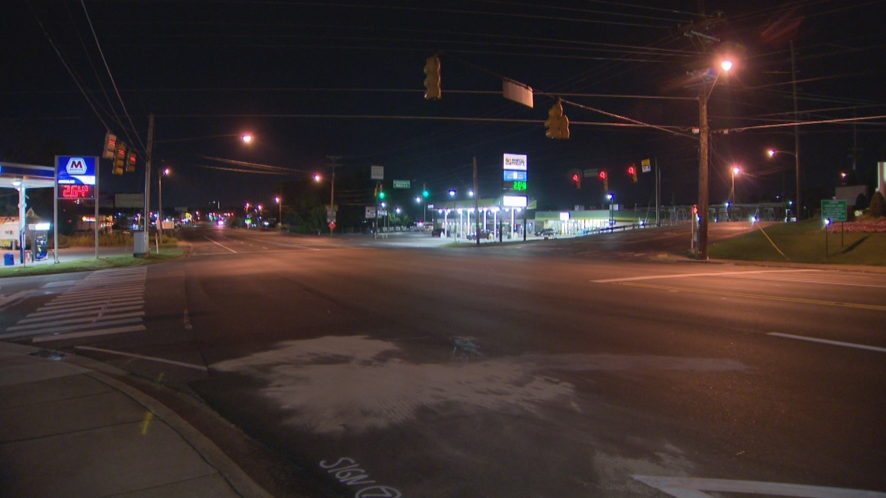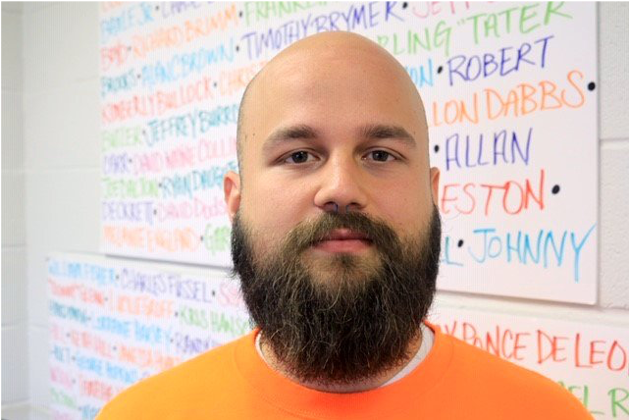More links related to these stories:

Ethelinda “Dawn” Wooten
– As told by Andreos Chunaco
Remembered for her warmth, strength, and sweet spirit, Dawn Wooten was 52 when she crossed an intersection in Nashville, TN, and was fatally struck by a vehicle on August 15, 2019.
Andreos Chunaco, South Side Outreach Worker and Housing Navigator at Open Table Nashville, shares her story.
Open Table provides outreach and housing services to people experiencing homelessness.
Smiling Through the Layers
I first met her just driving around town. Ethelinda Wooten—she went by “Dawn.” She used to fly signs and walk around the main street getting into and out of Nashville from Nolensville Road. I saw her a lot. Would kind of chat with her, drop off a snack or water or something like that over the years. And then I really got to meet her through starting here at Open Table Nashville. I was getting introduced to the long-term connections that previous Open Table folks had with our friends in the area. I was introduced to her then. I think she recognized me, I definitely recognized her.
It was just before wintertime 2018… It was cold and so when I met her, she was in all of these layers of shirts and overshirts and jackets. That’s how she kept herself warm, and you could still tell through that that she was still very thin and frail. She was like 5’1”, almost 5’ nothing, 90 pounds sopping wet, but strong as an ox. As soon as she touched you to hold your arm or hug you, you realized the strength that she had.
She was super sweet. Her smile took up her whole face pretty much. She always had some kind of hat on or beanie or toboggan, and that would cover up half her head. Then you’d see those eyes that would kind of disappear as she smiled and then huge smile. Really sweet lady. Loved her a lot.
“A Cat And A Half”
It was a good friendship from the start. She just had a way about her of being really nice and sweet and strong in her own way. Even if she needed certain things, she wouldn’t ask in a way that was desperate. She asked in a way of like, “Hey, if you can do this for me, this is what I need. But if not, I totally understand, and I’m good, and I’m alright.” She used to stay on the back end of a soccer field, and so I met her in the parking lot, and she needed things just to get prepared for the wintertime. Some propane, and gloves, and socks.
I think I gave her a burner [or disposable phone] that first time I met her, which ended up being one of the burners that malfunctioned and ended up burning down her tent one night. She was like a cat and a half—she had many lives. She woke up one night, and her burner had malfunctioned, and it had caused a few things to start catching on fire. I think she woke up to the smoke, and then it started going up in flames. She said she barely got out, just because she had a lot of stuff in her tent. She was pretty well set up with just different odds and ends to survive.
She just went through a lot. She was so strong. She walked with a limp and had some very broken, permanently damaged bones and wasn’t all that well. But she survived because she was just so strong.
Sanctuary and Friendship
Dawn was pretty much always alone… but she knew how to survive and was just so strong that she really encouraged and inspired and sometimes demanded that strength in others, which was always a positive.
She always liked to be by herself. The only times that I knew her to be not alone in her own campsite was when she was helping other folks out. One time there was a younger lady coming through—[she] had a lot of substance abuse and [domestic] abuse. Dawn let her stay in her tent with her. I think this lady’s abuser was in the area as well, and so Dawn was like that mother figure, there to protect her and give her a safe space, a sanctuary, and friendship.
Another lady I work with ended up staying with Dawn. They’re about the same age, and Dawn also just gave her sanctuary because she was going through some really negative spirals and was burning a lot of bridges. Dawn took her in and brought her back to really good health. This other individual had a lot of physical disabilities and relied on a wheelchair. When I found her, she had been in a sleeping bag for a week and a half under a bridge, not moving.
Her friends would bring her food and water, but she would lay there, 24/7. She was in her own urine and feces. Really just in bad shape, and Dawn ended up taking her in, pushing her and saying, “You know, you can do this. You can get up, you can get out, you can get stronger.”
In their own words:
Dawn’s strength and spirit.
Left Behind
In my time knowing Dawn, she could only allude to family in her life before the streets. She’d been on the street a long time, and I think it was just too painful for her to revisit that. She would say, “Oh, my family doesn’t want anything to do with me anymore. I’ve burned those bridges… they don’t want me around, or they don’t want me in their lives anymore. I’m all alone.” She mentioned her ex-husband at one point. She just really didn’t talk about that. She talked about everything else.
She was from [Nashville, and] all her family is still in the area. A lot of my folks are Nashville born and raised and have networks here and family here. It’s just the city grew so quickly in the other direction of them and left them behind.
I know that previous outreach workers worked with her on housing, but when I was working with her, she didn’t want or wasn’t ready for that. I think she was going through personal things… and trying to break those cycles before housing. But I also think a lot of it is because getting housing is so difficult that that process alone takes so much out of a person. It’s not that they’re not ready for housing or to be housed—it’s they’re not ready for that grueling, painstaking, long process.
“I Knew You Would Come”
She got hit by a car three times in one 12-month period. There are two intersections within a block of one another, Nolensville and Harding and Nolensville and Edmonson. People get hit there all the time. Run over, hit and run. One time Dawn got hit so hard that she fell off the bridge and then just laid there for hours.

There was one day that I was with one of our interns at Open Table, and we went over to the soccer fields to do outreach rounds. We got to Dawn’s tent and as we approached, we announced ourselves. She was in her tent, and the first thing she said was, “Andre, I knew you would come.”
I was like, “Yeah, it’s me, I’m here.”
She goes, “Andre, I got hit two days ago by a car and I laid in the ditch for two hours, and then I walked over here. I got in my tent and when my adrenaline wore off, I realized how hurt I was. I think my ribs are broken, I can’t really walk, every time I breathe, if I breathe too deeply, I feel bones puncture into my lungs. I don’t know what to do, but I knew you would come. I’m so glad you’re here.”
We had to pick her up, walk her to the car, and take her to the hospital across the street. We moved quickly and got her in, and she ended up being ok.
While we don’t know the specifics of Dawn’s history, parts of her journey navigating life on the streets may have mirrored those of other women experiencing homelessness. Women without homes have different health care and hygiene needs and gaining access to the appropriate care and resources is often difficult.
There are vast differences in the vulnerabilities and risks of being a female versus a male living on the streets. Women are far more likely to be impacted by intimate partner violence that leads to homelessness. An estimated half of all women and children experiencing homelessness have become homeless while trying to escape abusive situations.
Other available statistics further demonstrate the challenges faced by women without homes. Once homeless, women face a higher risk of sexual assault than men—a Massachusetts study found that 92 percent of women without homes had experienced severe physical or sexual assault.
Women without homes often report multiple episodes of violent victimization at the hands of multiple perpetrators, beginning in childhood and extending into adulthood. Additionally, the sexual assault experiences of women experiencing homelessness are more likely to be violent. These facts highlight the importance of gender-specific approaches for women without homes.
In their own words:
Sheltering others.
A Life Cut Short
Dawn passed away a couple of months ago. She was crossing the street at night when she got run over by a pickup truck. There were only a couple of news reports, and they said it was a hit and run. But after those reports came out, the driver had returned once he saw that there were reports about a hit and run in that area. He came back and said, “Oh, I thought I hit a curb.” But he had hit Dawn.
I went through all the emotions, but I think in the aftermath of it… it was a difficult intersection and it was at night, and I think he was having to go uphill and make a right. I think he looked left, or looked right, probably didn’t see anybody or anything because he’s in this massive pickup truck. And Dawn was just so small, so he turned and ran her over without knowing. I’ll give him the benefit of the doubt for that.
It was actually Dawn’s friends that came to the scene and called the police, and they were holding her. Her other friend said that she witnessed Dawn take her last breath. Once the ambulance came there, she was Life Flighted to Vanderbilt, but she was dead on arrival there.
Remembering Moments
I just saw her sweetness with her strength and how much she loved and cared about me and our friendship, but also other people. All the times where I would just see her again and say “hi.” She would stop whatever she was doing or she would walk up to me and just give me a hug and say, “Hi, so good to see you, knew you were coming,” or “[I] was expecting you.”
She could give that same moment to me and to anybody I think, over and over again. I think that was my favorite memory of her. I realized I had so many of those memories and that memory was not just a memory, it was just a moment. And that moment was every time I saw her again.
What can you do to stop homeless deaths?
Join us in working toward a world in which no
life is lived or lost in homelessness.
